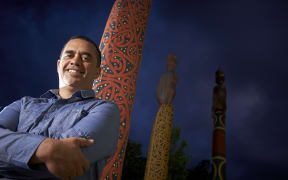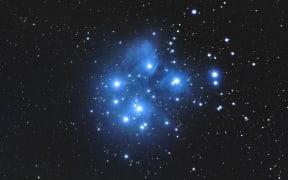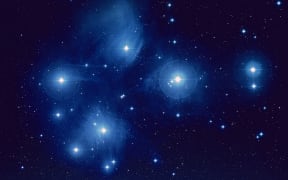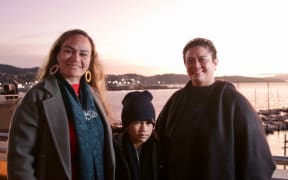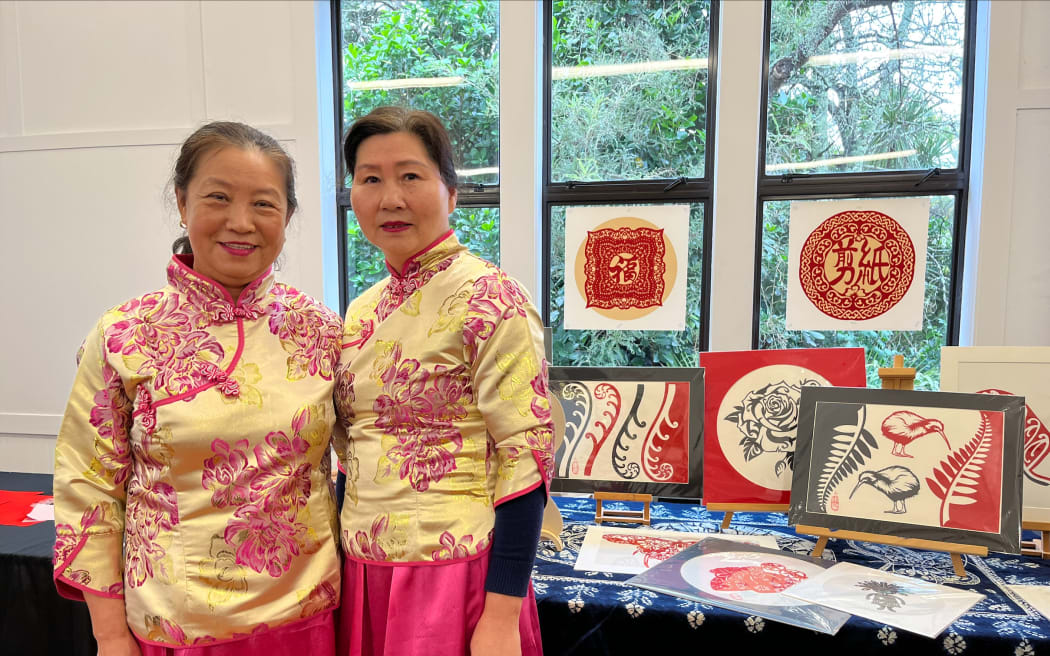
Photo: RNZ / Duoya Lu
The Chinese community is adding a splash of colour to Matariki festivities this month as the country celebrates the Māori new year.
Chinese cultural groups have been holding workshops at events in Auckland organised to mark Matariki, touching on traditional and contemporary subjects such as paper cutting, sugar painting, dumpling making, floral art and Māori-Chinese language study.
Last month, hundreds attended a Matariki festival at O Wairoa Marae in Howick to participate in activities celebrating the Māori new year.
Chinese artist Jing Xie dazzled visitors with traditional paper-cutting renditions of the Matariki star cluster that sits above the horizon at this time of year.
Traditional paper-cutting (jiǎnzhǐ) is typically used in China during special celebrations such as the lunar new year and weddings.
Tiffany Hu demonstrated a traditional Song Dynasty tea ceremony (diǎn chá) while wearing traditional clothing worn by Han Chinese.
Armed with little more than a dainty teaspoon, Hu was able to create the Chinese character for tea (茶/chá) in a cup.
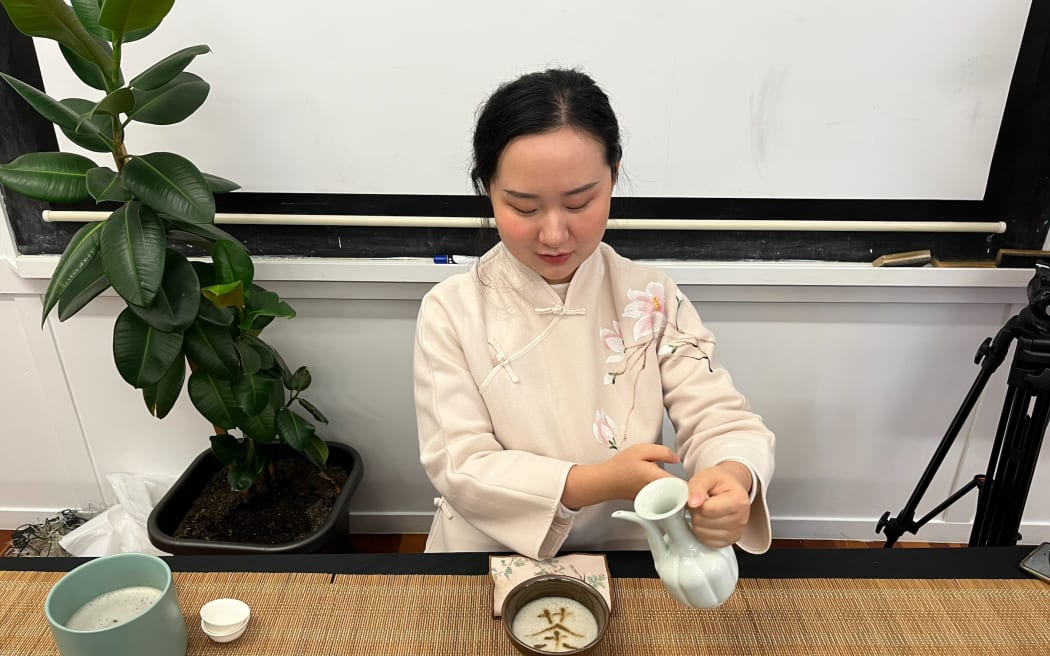
Tiffany Hu demonstrates a traditional Song Dynasty tea ceremony at the festival in Howick. Photo: RNZ / Duoya Lu
Chinese author Song Lam, who has studied Māori culture, language, history and mythology for 30 years, handed out language cards that offered Chinese and English explanations for greetings in Māori, including "Kia pai tō rā" ("Zhù nǐ yǒu měihǎo de yītiān"/"Have a nice day").
Lam also provided explanations in Chinese about the nine stars that are part of the Matariki cluster, noting that the celebration is connected to health and wellbeing, and the Pōhutukawa star is associated with those who have passed away.
"Māori and Chinese share striking similarities," Lam said, noting that the Māori and Chinese words for "meeting" - "hui" - were not only the same in terms of meaning but pronounced similarly.
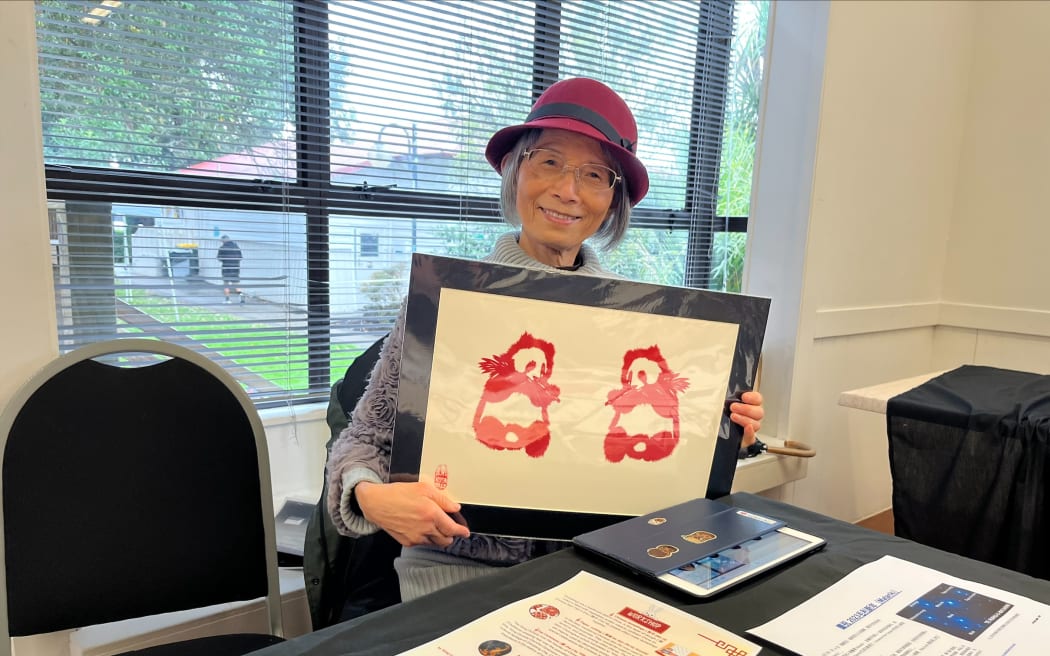
Song Lam teaches Māori/Chinese language during a workshop at a Matariki festival in Howick. Photo: RNZ / Duoya Lu
"The Māori marae is akin to a Chinese cítáng," Lam said, referring to a sacred place for ancestor worship.
"Māori people also have a tradition of exchanging gifts (koha) when visiting friends and relatives, which is like the Chinese gift-giving tradition.
"I encourage more New Zealand Chinese start to learn Māori culture and language, as it can reduce misunderstandings."
A national survey of 1000 people conducted by Kantar Public for Te Papa Museum in Wellington last year showed that Asian New Zealanders celebrated Matariki "significantly higher than average" compared to many New Zealanders.
The survey showed that 50 percent of all Kiwis took some action to mark the Māori new year. By comparison, 59 percent of Asian New Zealanders celebrated the occasion.
Only Māori and Pacific people scored higher on this index, with 68 and 62 percent commemorating Matariki respectively.
It is also worth noting that 57 percent of families with children are more likely to celebrate Matariki.
"When Te Papa started celebrating Matariki 25 years ago, we were an outlier. Now we see how Matariki is being embraced by New Zealanders across the board," said Arapata Hakiwai, Te Papa's Māori co-leader.
"It's a mark of how far we have come as a nation. Our research shows Matariki is becoming a truly national phenomenon."
Reflecting this, North Shore Chinese Association Chairperson Nancy Yan organized a joint Dragon Boat and Matariki Festival in June last year.
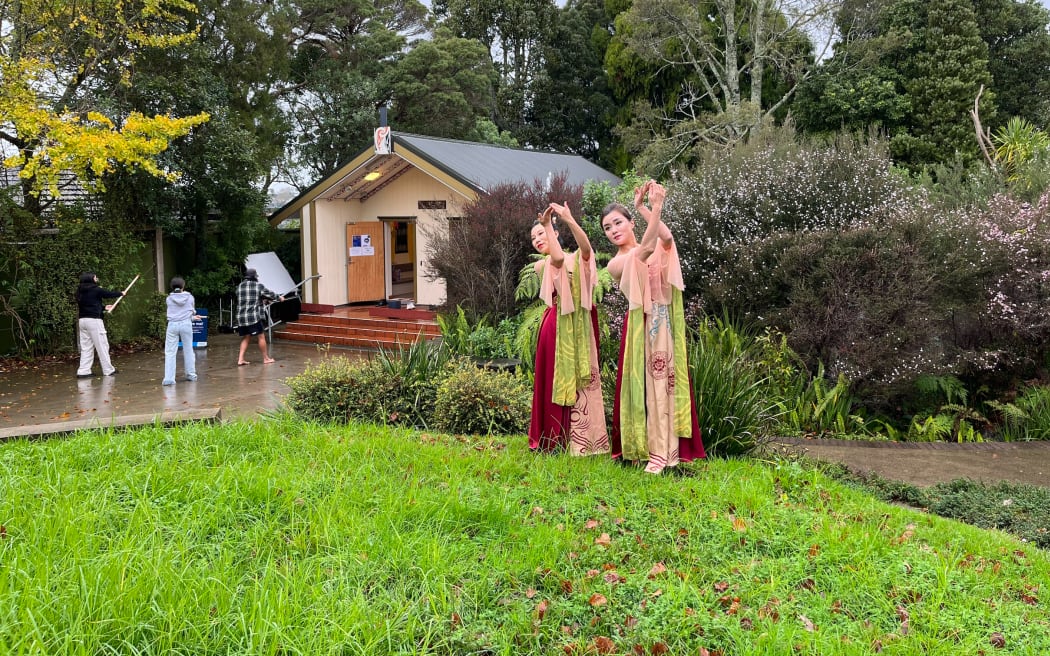
Visitors dressed in traditional clothing worn by Han Chinese attend a Matariki festival in Auckland's Howick neighborhood. Photo: RNZ / Duoya Lu
Yan said the two festivals share similarities that are significant in many ways.
After studying Māori language for two years and briefly learning mau rākau (a form of Māori martial arts), Yan also encourages more Chinese in New Zealand to learn Māori language and culture.
"Speaking Māori will truly make you part of the local community," Yan said.
"To promote greater understanding of Chinese culture among Kiwis, we should first immerse ourselves in the multiculture of New Zealand."

